Thursday, October the 10th 2019, Google organised its yearly Google Cloud Summit event in Amsterdam. This event is meant for developers, engineers, IT decision makers and fellow Cloud experts from the BeNeLux to stay up to date with the newest technologies from Google Cloud. Besides, it is the perfect opportunity to learn from each other by exchanging ideas and solutions. This blog post provides an overview of this impactful event from my perspective, a young Cloud Engineer who only recently started working with Google Cloud at Fourcast. I’ll also talk about Google’s AI & ML products as they were presented at the event.

Google Cloud Summit took place at RAI Amsterdam Convention Centre, an impressive complex of conference and exhibition halls that perfectly encompassed the magnitude of the event.
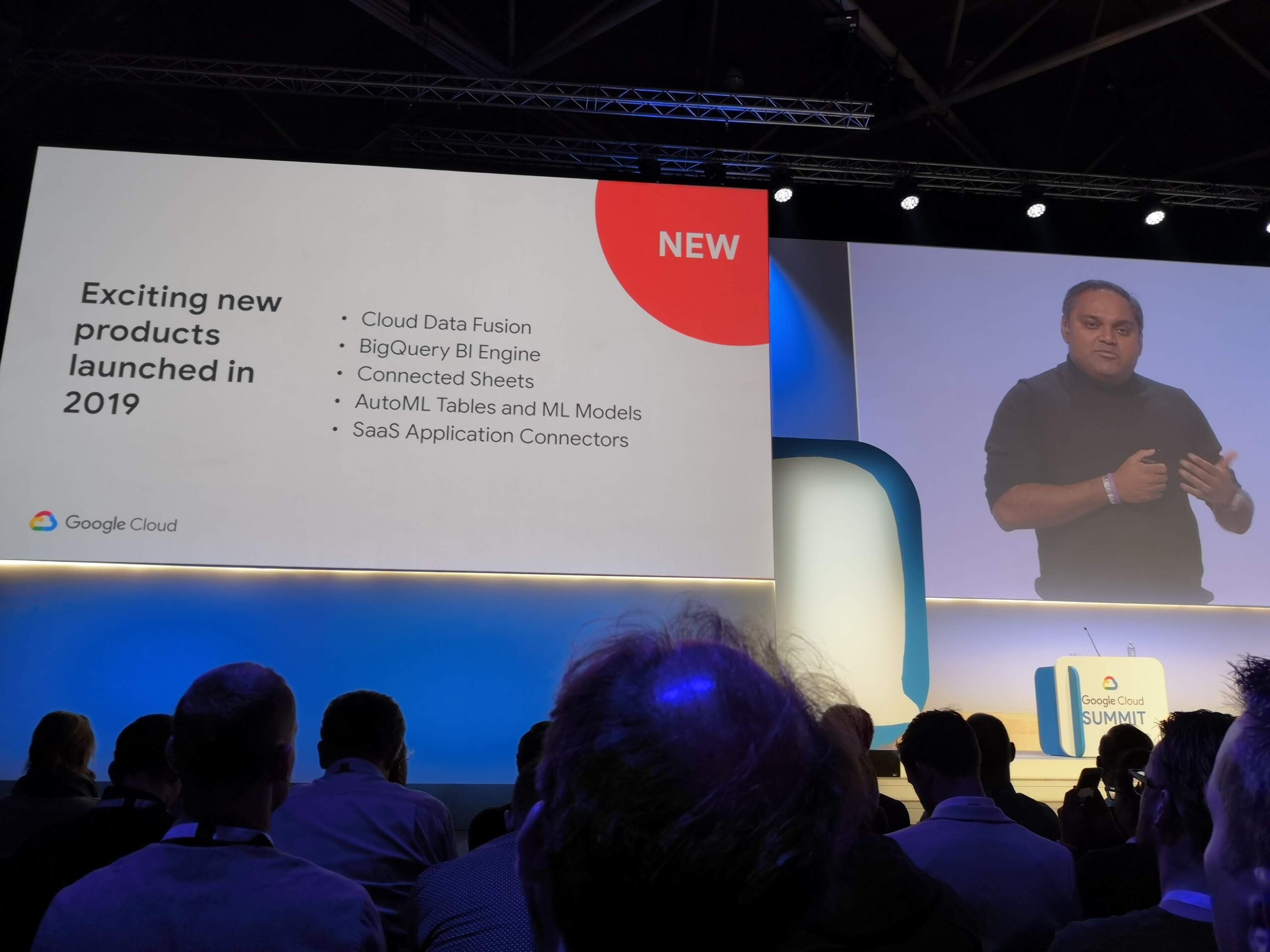
First, there was an introductory keynote to outline all the exciting new products that Google launched in 2019 (see also this blog post about announcements made at Google Cloud Next ’19 in San Francisco in April this year). These include Anthos, Cloud Run, Cloud Data Fusion, BigQuery BI Engine, Connected Sheets, AI Hub, AutoML Tables & ML Models, and others.
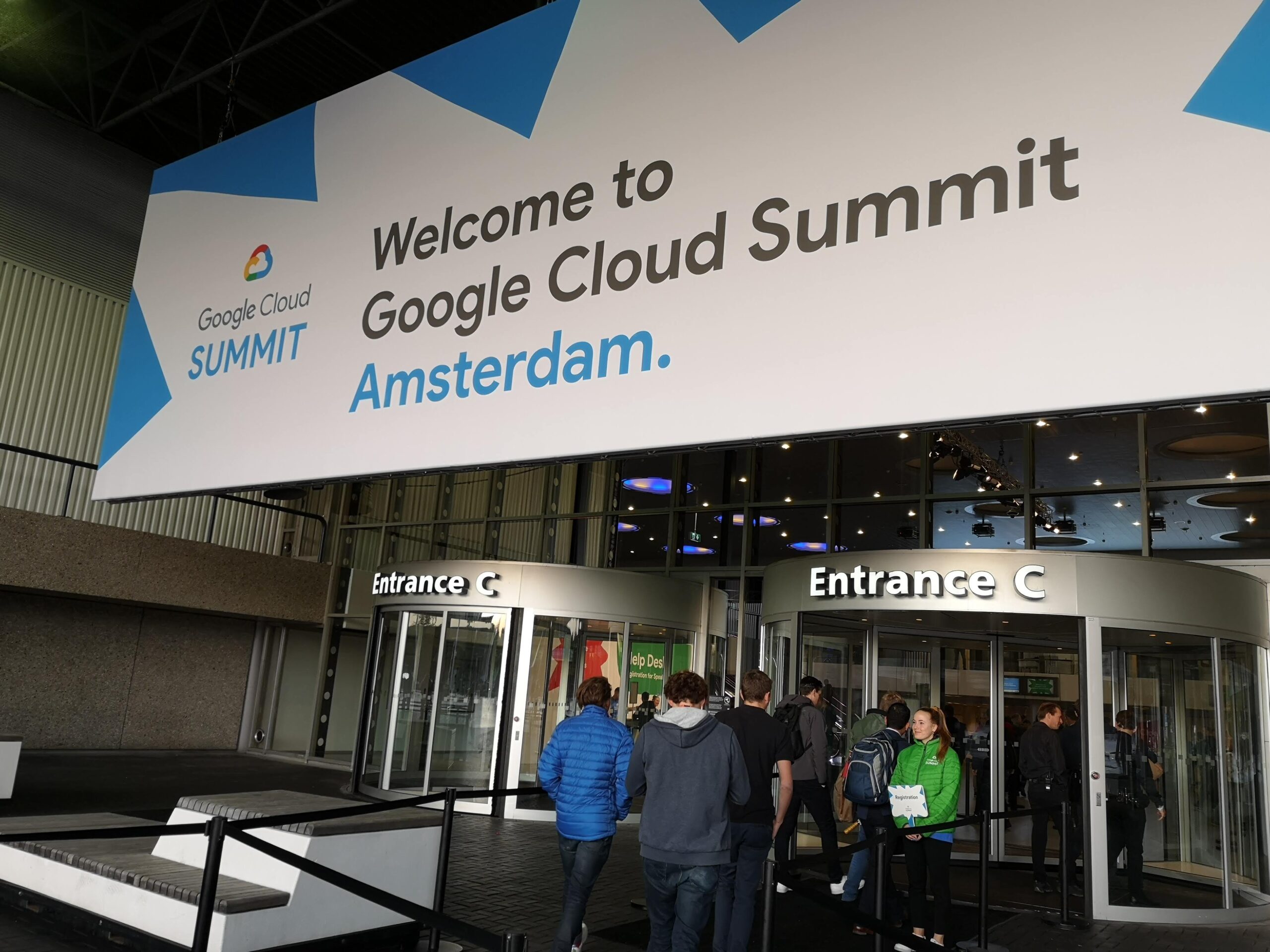
During the rest of the day, it was possible to attend many different sessions on various topics. Each session took about 30 minutes and often included a real-world customer story. A complete overview of the agenda can be found here.
Google Cloud, on top of the AI game
Since I have a background in Artificial Intelligence (AI) and Machine Learning (ML), I was most interested in Google’s AI solutions such as Auto ML Models. This promising product makes it possible to easily build state-of-the-art machine learning models for tabular data, even without a thorough background in data science.
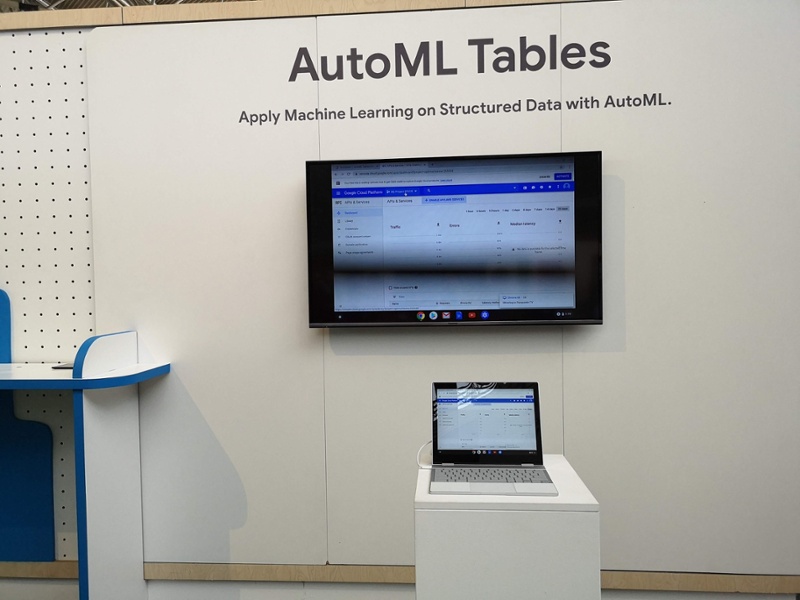
One interesting feature is that AutoML Tables does a lot of the preprocessing steps automatically so that one has to spend less time on feature engineering. For example, one-hot encodings and embeddings are automatically created for categorical data.
The most interesting feature, however, is that you don’t have to worry about choosing the right model architecture. Google automatically starts with training several models in parallel and is able to quickly determine the best model architecture for your application. Currently, supported model architectures include feedforward neural networks, gradient boost decision trees, AdaNet or even ensembles of various architectures.
As there is an active research community, new architectures will be added from the moment they come out.
Google AI Hub: new pre-built models
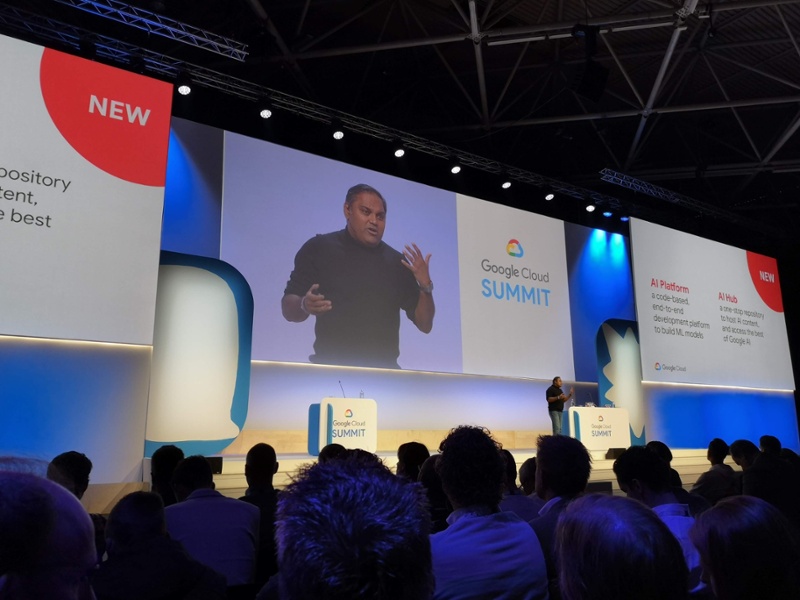
Google also provides a bunch of pre-built AI solutions such as Vision AI, NLP, Translation AI, and others. It is possible to directly use these pre-trained models or they can be used as building blocks for building your own models. They can then be trained with your own data, specified for a particular use case.
Google announced new pre-built solutions for Recommendations AI, Document Understanding AI, and Contact Center AI at Google Cloud Summit 2019 in Amsterdam. Those building blocks, next to other plug-and-play AI components from third-party providers, can be accessed in AI Hub.
So what is AI Hub? This is a hosted repository where machine learning developers can collaborate to share and reuse AI content. Sharing can also be privately controlled within an organisation. The resulting work can then also be easily deployed from AI hub onto the Google Cloud or on a hybrid infrastructure.
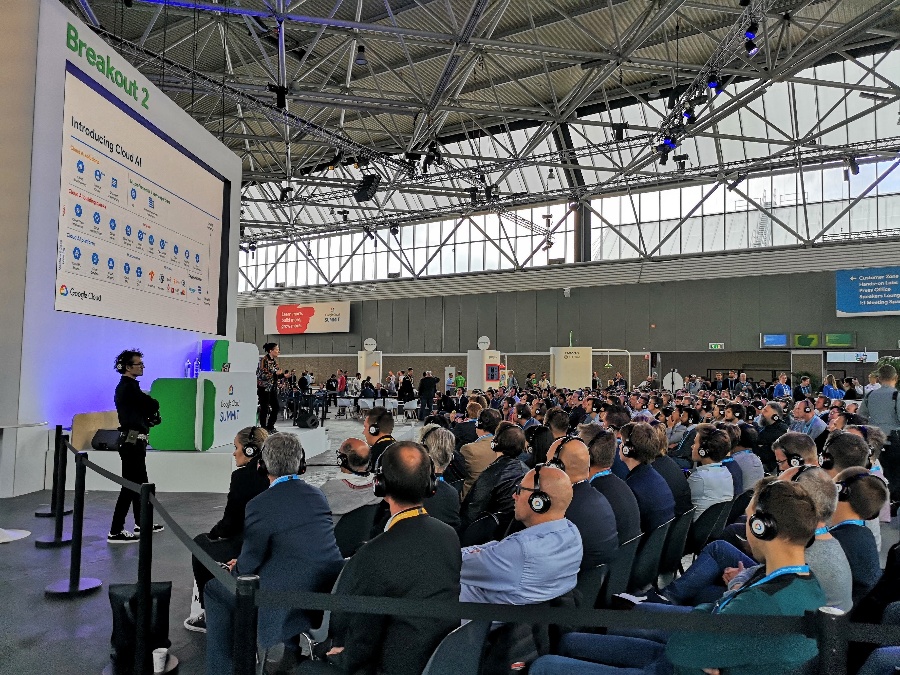
Customer story: process optimisation
One of the sessions on AI was given by Steve Loh, Customer Engineer at Google. He explained how Google’s ready-to-deploy AI solutions can be used by businesses to improve customer satisfaction and process optimisation. This was supported by a successful customer story from TVH, a company active in the market of forklift trucks and industrial vehicles.
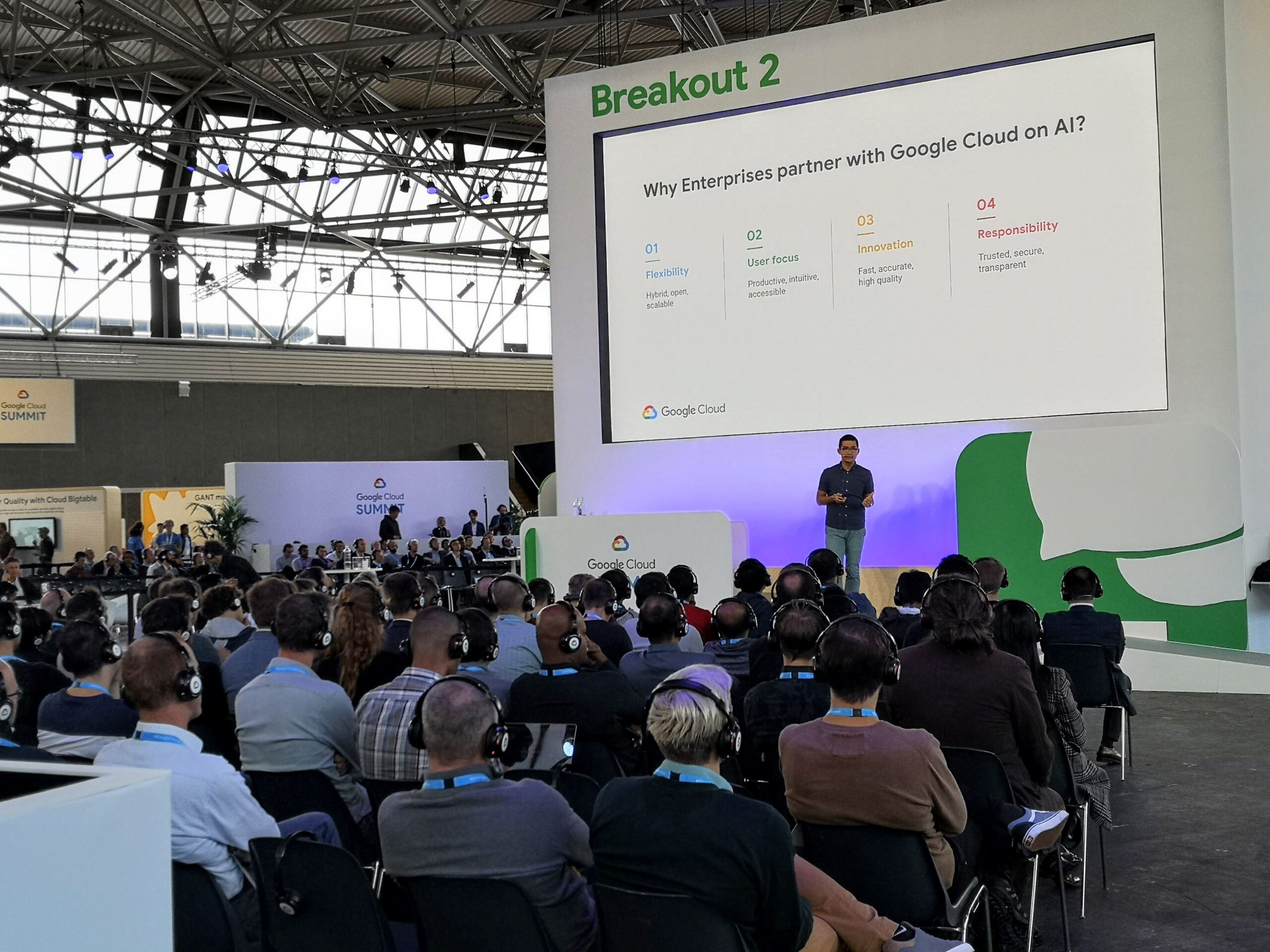
Before, TVH had a team of employees whose responsibility was to recognise and classify more than 1.500 different parts in their warehouses. As this process was slow and error-prone, they are currently working with a solution for automatically classifying these parts.
By retraining a model of Google’s Vision AI with their own data, they were able to automatically classify their products with 80% accuracy. This illustrates the enormous potential that Google’s AI solutions can have in many different sorts of businesses.
It’s clear that Google believes that Artificial Intelligence will play a central role in achieving its mission “to organise the world’s information and make it universally accessible and useful”. I am thrilled to start working with those products and am already looking forward to the next Google announcements concerning AI and ML.
Want to read more?
Want to attend a Google Cloud event yourself?